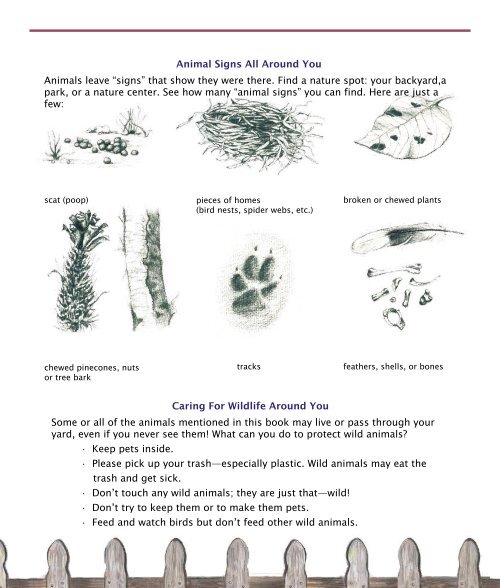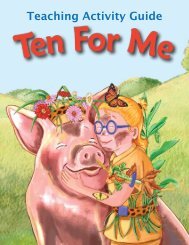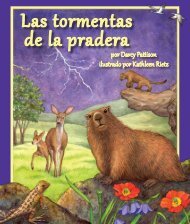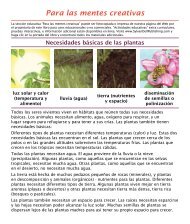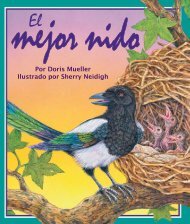By Valarie Giogas Illustrated by Katherine Zecca - Sylvan Dell ...
By Valarie Giogas Illustrated by Katherine Zecca - Sylvan Dell ...
By Valarie Giogas Illustrated by Katherine Zecca - Sylvan Dell ...
Create successful ePaper yourself
Turn your PDF publications into a flip-book with our unique Google optimized e-Paper software.
Animal Signs All Around You<br />
Animals leave “signs” that show they were there. Find a nature spot: your backyard,a<br />
park, or a nature center. See how many “animal signs” you can find. Here are just a<br />
few:<br />
scat (poop)<br />
pieces of homes<br />
(bird nests, spider webs, etc.)<br />
broken or chewed plants<br />
What to Do If You Find an Injured Animal<br />
Wildlife rehabilitators are people who care for injured wild<br />
animals and nurse them back to health. It is always a good<br />
idea to look up and find a wildlife rehabilitator in your area<br />
before you need one! Check online, look in the phone book,<br />
or ask a veterinarian.<br />
If the animal is alert and big enough to harm you, call<br />
the wildlife rehabilitator or your local animal control. Let<br />
professionals help the animal.<br />
If the animal is small, of no danger to you, and looks<br />
like it may be nursed back to health, try to get it to<br />
a rehabilitator:<br />
chewed pinecones, nuts<br />
or tree bark<br />
tracks<br />
Caring For Wildlife Around You<br />
feathers, shells, or bones<br />
Some or all of the animals mentioned in this book may live or pass through your<br />
yard, even if you never see them! What can you do to protect wild animals?<br />
• Keep pets inside.<br />
• Please pick up your trash—especially plastic. Wild animals may eat the<br />
trash and get sick.<br />
• Don’t touch any wild animals; they are just that—wild!<br />
• Don’t try to keep them or to make them pets.<br />
• Feed and watch birds but don’t feed other wild animals.<br />
• Wear gloves or wrap the animal in a towel so<br />
that you don’t touch it. Remember that the<br />
animal, if conscious, will be scared and may try<br />
to claw or bite. An unconscious animal could<br />
wake up any time.<br />
• If it is cold, place a heating pad on low or a<br />
ziplock bag of very warm water in part of a box<br />
(so the animal can move away from the heat if<br />
necessary) and put a towel or blanket on top<br />
of the heat source. Place the injured animal on<br />
top of the warm side, on top of the towel or<br />
blanket.<br />
• Tightly cover the box, but please make sure<br />
that there are ventilation holes for the animal<br />
to breathe.<br />
• Do NOT try to feed the animal.<br />
• If you think an animal is orphaned, leave it<br />
alone until you are positive that the mother is<br />
not returning. It is normal for animal parents to<br />
leave to get food, sometimes for several hours<br />
or even all day. If, however, you know that the<br />
mother is dead, call a wildlife rehabilitator or<br />
wildlife expert to get the animal.


